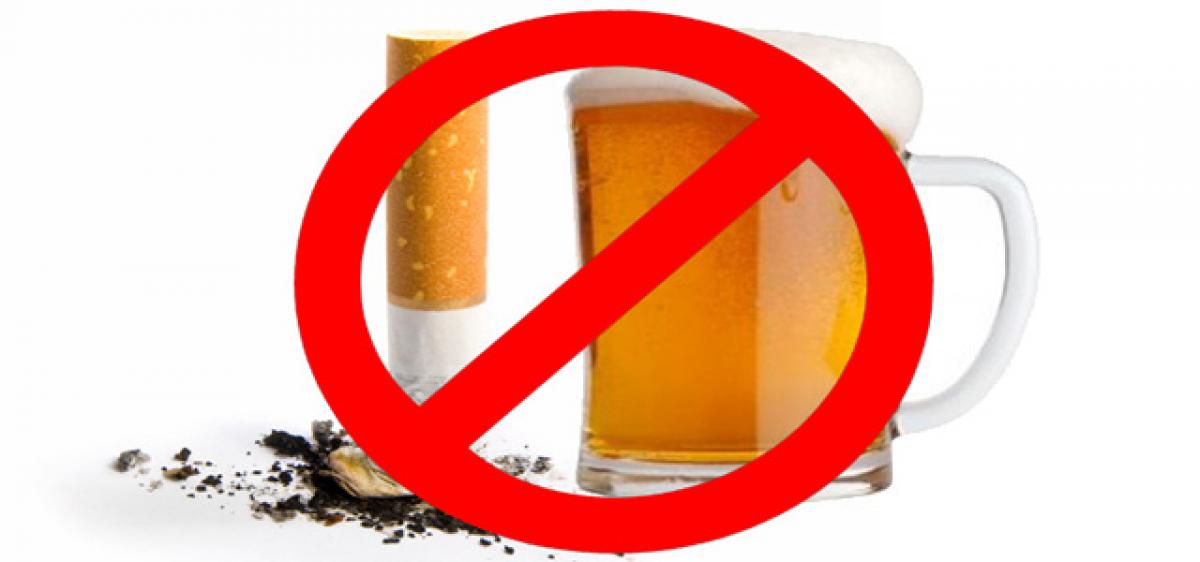
Daily Health Tips: Essential Steps for Optimal Well-being
In today’s fast-paced world, maintaining good health can sometimes feel like a daunting task. However, by incorporating simple yet effective daily health tips into your routine, you can significantly improve your overall well-being. This comprehensive guide delves into practical, science-backed strategies that you can easily implement in your everyday life. From nutrition and exercise to mental health and sleep, these tips are designed to help you achieve optimal health in a way that is both sustainable and enjoyable.
1. Start Your Day with a Balanced Breakfast

Breakfast is often dubbed the most important meal of the day, and for a good reason. A balanced breakfast provides your body with essential nutrients, kickstarts your metabolism, and sets the tone for healthy eating throughout the day.
Importance of Breakfast: Studies show that people who eat breakfast regularly are more likely to maintain a healthy weight and have better cognitive function than those who skip it. A nutritious breakfast can also help regulate blood sugar levels, reducing the risk of diabetes and heart disease.
What to Include: A balanced breakfast should include a mix of protein, healthy fats, and complex carbohydrates. Examples include whole-grain oats topped with nuts and berries, scrambled eggs with avocado and whole-grain toast, or a smoothie made with leafy greens, Greek yogurt, and fruit.
2. Stay Hydrated

Water is essential for nearly every bodily function, from regulating temperature to aiding digestion. Staying adequately hydrated helps maintain energy levels, supports kidney function, and can even improve your skin’s appearance.
Daily Water Intake: The general recommendation is to drink at least eight 8-ounce glasses of water per day, commonly known as the “8×8 rule.” However, individual needs may vary based on factors like age, gender, activity level, and climate.
Tips for Staying Hydrated: Carry a reusable water bottle with you throughout the day, set reminders to drink water, and consider infusing your water with fruits or herbs for added flavor.
3. Incorporate Regular Physical Activity
Regular physical activity is crucial for maintaining a healthy body and mind. Exercise not only helps control weight but also reduces the risk of chronic diseases, improves mental health, and boosts overall quality of life.
Types of Exercise: A well-rounded fitness routine includes aerobic exercises (like walking, running, or swimming), strength training (such as weight lifting or resistance bands), and flexibility exercises (like yoga or stretching).
Exercise Recommendations: The CDC recommends at least 150 minutes of moderate-intensity aerobic activity or 75 minutes of vigorous-intensity activity each week, combined with muscle-strengthening activities on two or more days.
Making Exercise a Habit: Find activities you enjoy, set realistic goals, and create a consistent schedule. Incorporating physical activity into your daily routine, such as taking the stairs instead of the elevator, can make a big difference.
4. Prioritize Sleep
Sleep is a critical component of overall health, influencing everything from mood and cognitive function to immune response and metabolism. Poor sleep can increase the risk of various health issues, including obesity, heart disease, and depression.
Understanding Sleep Needs: Most adults need 7-9 hours of sleep per night. However, quality is just as important as quantity. A regular sleep schedule, a comfortable sleep environment, and good sleep hygiene practices are essential for restorative sleep.
Sleep Hygiene Tips: Establish a bedtime routine, limit screen time before bed, keep your bedroom cool and dark, and avoid caffeine or heavy meals close to bedtime.
5. Practice Mindful Eating
Mindful eating involves paying full attention to the experience of eating and drinking, both inside and outside the body. This practice can help you develop a healthier relationship with food, prevent overeating, and improve digestion.
Benefits of Mindful Eating: Mindful eating can reduce stress, improve digestion, and help with weight management. It encourages you to savor your food and listen to your body’s hunger and fullness cues.
How to Practice: Eat slowly and without distractions, focus on the taste, texture, and aroma of your food, and pay attention to how different foods make you feel physically and emotionally.
6. Manage Stress Effectively

Chronic stress can take a toll on your health, contributing to a variety of physical and mental health problems, including heart disease, anxiety, and depression. Learning to manage stress effectively is essential for maintaining overall well-being.
Stress-Reduction Techniques: Engage in regular physical activity, practice relaxation techniques such as deep breathing, meditation, or yoga, and ensure you have a strong social support network.
Mindfulness and Meditation: Mindfulness involves staying present and fully engaging with the current moment. Meditation, which often focuses on mindfulness, has been shown to reduce stress, improve concentration, and promote emotional health.
7. Cultivate Healthy Relationships
Social connections are vital for emotional well-being. Positive relationships can provide support, increase feelings of belonging, and contribute to a sense of purpose, all of which are important for mental health.
Building Strong Relationships: Communicate openly and honestly with loved ones, invest time in nurturing relationships, and seek to resolve conflicts constructively.
Social Activities: Participate in community events, join clubs or groups that interest you, and make time for social activities that bring you joy.
8. Limit Alcohol and Avoid Smoking

While moderate alcohol consumption may have some health benefits, excessive drinking can lead to serious health issues, including liver disease, heart problems, and addiction. Smoking is a leading cause of preventable diseases and death worldwide.
Guidelines for Alcohol: The CDC defines moderate drinking as up to one drink per day for women and up to two drinks per day for men. If you choose to drink, do so in moderation and be aware of the associated risks.
Smoking Cessation: Quitting smoking is one of the best things you can do for your health. Seek support from healthcare professionals, use cessation aids like nicotine patches or gum, and consider counseling or support groups.
9. Maintain a Healthy Weight
Achieving and maintaining a healthy weight is important for overall health and can help prevent chronic diseases like diabetes, heart disease, and certain cancers.
Healthy Eating Habits: Focus on a balanced diet rich in fruits, vegetables, whole grains, lean proteins, and healthy fats. Avoid processed foods, sugary drinks, and excessive portions.
Regular Physical Activity: Combine a healthy diet with regular physical activity to manage weight effectively. Even small changes, like walking more or choosing stairs over elevators, can make a difference.
Set Realistic Goals: Set achievable goals for weight management and celebrate progress, no matter how small. Consult with a healthcare provider for personalized advice.
10. Regular Health Checkups
Routine health checkups are vital for detecting and preventing health issues early. Regular screenings and tests can identify risk factors and early signs of disease, leading to more effective treatment.
What to Include in Checkups: Depending on your age, gender, and health history, regular checkups may include blood pressure screenings, cholesterol tests, cancer screenings, and vaccinations.
When to See a Doctor: Schedule regular checkups with your healthcare provider, and don’t hesitate to see a doctor if you notice any unusual symptoms or changes in your health.
11. Mental Health Awareness
Mental health is just as important as physical health. Taking care of your mental well-being involves recognizing when you need help, seeking support, and taking steps to improve your mental health.
Signs to Watch For: Common signs of mental health issues include prolonged feelings of sadness or anxiety, changes in eating or sleeping patterns, and loss of interest in activities you once enjoyed.
Getting Help: If you’re struggling with mental health issues, don’t hesitate to reach out to a mental health professional. Therapy, counseling, and medication are all effective treatments for various mental health conditions.
Self-Care: Engage in activities that promote relaxation and joy, such as hobbies, spending time with loved ones, or simply taking time for yourself.
12. Maintain Oral Hygiene
Good oral hygiene is essential for preventing dental issues like cavities, gum disease, and bad breath. It also contributes to overall health, as poor oral hygiene can lead to systemic health problems.
Daily Oral Care: Brush your teeth twice a day with fluoride toothpaste, floss daily, and use mouthwash to reduce plaque and prevent gum disease.
Regular Dental Visits: Visit your dentist regularly for checkups and cleanings. Early detection and treatment of dental issues can prevent more serious problems down the line.
13. Be Sun Smart

Protecting your skin from the sun’s harmful rays is crucial for preventing skin cancer and premature aging. Sun safety should be a daily priority, regardless of the weather or season.
Sun Protection Strategies: Apply a broad-spectrum sunscreen with an SPF of at least 30 to all exposed skin, wear protective clothing, and seek shade during peak sun hours (10 a.m. to 4 p.m.).
Avoid Tanning Beds: Tanning beds increase the risk of skin cancer and should be avoided. Opt for sunless tanning products if you want a tan without the risk.
14. Balanced Diet for Nutrient Intake
A balanced diet is the cornerstone of good health. Eating a variety of foods ensures you get the nutrients your body needs to function optimally.
Nutrient-Rich Foods: Include plenty of fruits, vegetables, whole grains, lean proteins, and healthy fats in your diet. These foods provide essential vitamins, minerals, and antioxidants that support overall health.
Portion Control: Pay attention to portion sizes to avoid overeating, which can lead to weight gain and other health issues. Use smaller plates, eat slowly, and listen to your body’s hunger and fullness signals.
Avoiding Processed Foods: Limit your intake of processed foods high in sugar, sodium, and unhealthy fats. Opt for whole, unprocessed foods whenever possible.
15. Boost Immunity with Healthy Habits
A strong immune system is essential for fighting off infections and staying healthy. Several daily habits can help boost your immunity.
Healthy Eating: A diet rich in fruits, vegetables, lean proteins, and healthy fats supports immune function. Foods like citrus fruits, garlic, and ginger have immune-boosting properties.
Regular Exercise: Physical activity promotes good circulation, which allows immune cells to move through the body more effectively.
Stress Management: Chronic stress can weaken the immune system. Incorporate stress-reducing activities like meditation, yoga, or spending time in nature.
Adequate Sleep: Sleep is crucial for immune health. Aim for 7-9 hours of quality sleep each night to give your immune system the rest it needs.
Conclusion
Maintaining optimal health doesn’t require drastic changes. By incorporating these daily health tips into your routine, you can significantly improve your physical and mental well-being. Remember, small, consistent actions lead to lasting results. Stay informed, listen to your body, and make choices that support your overall health.


